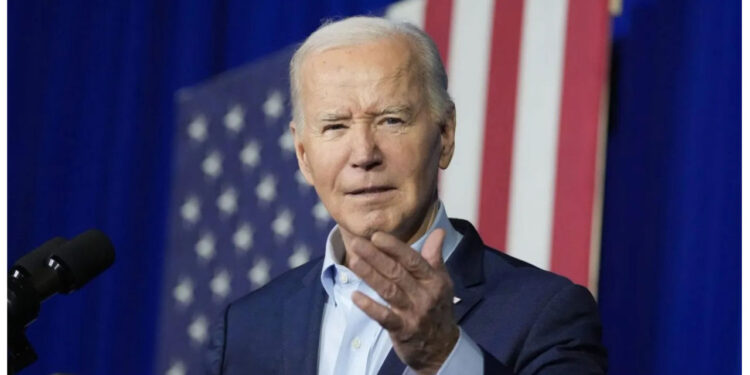The Biden administration issued a rule on Friday morning that will allow select “Dreamers” to enter the ObamaCare marketplace.
According to the rule, active Deferred Action for Childhood Arrivals (DACA) beneficiaries will be able to enroll in a qualified health plan or a basic health plan under the Affordable Care Act (ACA), as well as receive some financial help.
“This final regulation demonstrates the president’s core commitment to protecting ‘Dreamers’ and DACA recipients. He is committed to giving them the resources they require to prosper and fulfill their full potential,” Neera Tanden, director of the Domestic Policy Council, told reporters Thursday.
“This final rule also reflects the president’s belief that health care is a right—not a privilege—for all Americans and should extend to DACA recipients just like the rest of us.”
The new rule follows months of speculation about unilateral steps the Biden administration would take on immigration matters, ranging from potentially restricting asylum at the border to making work permits available to certain illegal immigrants.
Most of those potential actions are controversial on one side of the political spectrum, but Dreamers, undocumented immigrants who arrived in the country as minors, have generally garnered broader public support than other undocumented groups.
Nonetheless, DACA remains entangled in lawsuits. Though the Supreme Court rejected the Trump administration’s efforts to stop it, a Texas federal judge declared the initial memo that created it unconstitutional, and that same judge ruled against the Biden administration’s efforts to reclassify the program as a federal regulation.
The Supreme Court will likely determine the program’s final outcome, but for the time being, the federal government cannot add new participants to DACA.
As of September, there were 544,690 enrollees, but the Migration Policy Institute forecasts that 1,161,000 people will be eligible for DACA by 2022.
DACA recipients had previously been denied ObamaCare benefits, although other foreign nationals in deferred action programs were not.
According to earlier Centers for Medicare and Medicaid Services (CMS) standards, DACA recipients were not “lawfully present” under the health care law. As a result, many DACA participants, particularly those without employer-provided insurance or the ability to self-finance health insurance, have lost coverage.
CMS predicts that the new regulation will result in 100,000 newly eligible DACA individuals joining either a marketplace plan or a basic health program.
“Dreamers who receive DACA are currently three times more likely to be uninsured than the general U.S. population, and individuals without health insurance—I think we all know this—are less likely to receive preventative or routine health screenings,” the secretary of health and human services said.
“They postpone required medical care, resulting in higher costs and mortality when they do eventually seek trouble oneself. So allowing Dreamers to enroll in coverage will improve their health and well-being, while also strengthening the health and well-being of our country and economy.”
The rule will go into effect on November 1, with a 60-day special enrollment period for eligible DACA beneficiaries. To make the procedure easier, officials scheduled the period to coincide with open enrollment for other ACA users.
The new rule does not make DACA recipients eligible for Medicaid or parts of the Children’s Health Insurance Program, but they will be eligible for financial aid programs that are already available to noncitizens whose immigration status precludes them from receiving Medicaid but otherwise qualifies.
“The Biden-Harris Administration believes health care is a right, not a privilege, and that extends to DACA recipients who have built their lives in the United States,” CMS Administrator Chiquita Brooks-LaSure said in a statement.
“Today’s rule reduces barriers for DACA recipients to obtain health care coverage and is a vital step toward making certain that it is available and accessible to all Americans.”










